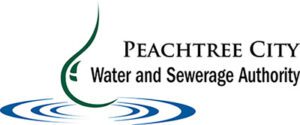Feb 7, 2011 by Dr. Chris Wood
The Peachtree City Water and Sewerage Authority (PCWASA) is encouraging its customers to prevent FOG from entering – and eventually damaging – home plumbing, the Authority’s sewer system, and Peachtree City’s environment.
Fats, oils, and grease (FOG) are derived from living cells of animal and vegetable matter, produced during food preparation at restaurants, cafeterias, and residential homes. After food is prepared and eaten, FOG can remain on cookware and dishware. As a result, these potentially harmful materials can enter into the sewer system from a kitchen drain.
“If fats, oils, and grease are not properly disposed of over time, they potentially can lead to sanitary sewer backups and overflows in our community,” says Xavier Davis, FOG Program Coordinator for PCWASA. “Just as foods high in cholesterol and saturated fats can clog your arteries, fats, oils, and grease can clog our wastewater collection system.”
Subsequently, when sewer lines are clogged with FOG, the PCWASA has to address the additional problems that backups and overflows can cause – damaged property, increased cleanup costs, and penalties from regulatory agencies for permit violations and/or noncompliance.
A few consumer tips can help PCWASA customers prevent the negative impact of FOG on their own plumbing, the Authority’s wastewater collection system, and the environment:
1. Put used cooking oils and fats, oils, and grease in tight-sealed containers, which can then be thrown away in the trash.
2. Put food scraps from cookware and dishes in the trash as well, rather than down the kitchen drain.
3. Wipe pots and pans with a dry paper towel prior to washing.
“With the help of our customers, we can greatly diminish the amount of fats, oils, and grease entering our system, which will in turn reduce our maintenance costs and system repairs,” says Stephen Hogan, PCWASA General Manager. “By properly disposing of these harmful substances, customers will protect their household plumbing, our community’s sewer system, as well as our environment.”
Media contact:
Chris Wood, Ph.D.
770-757-1681 (phone)
jcwood@uga.edu (email)

